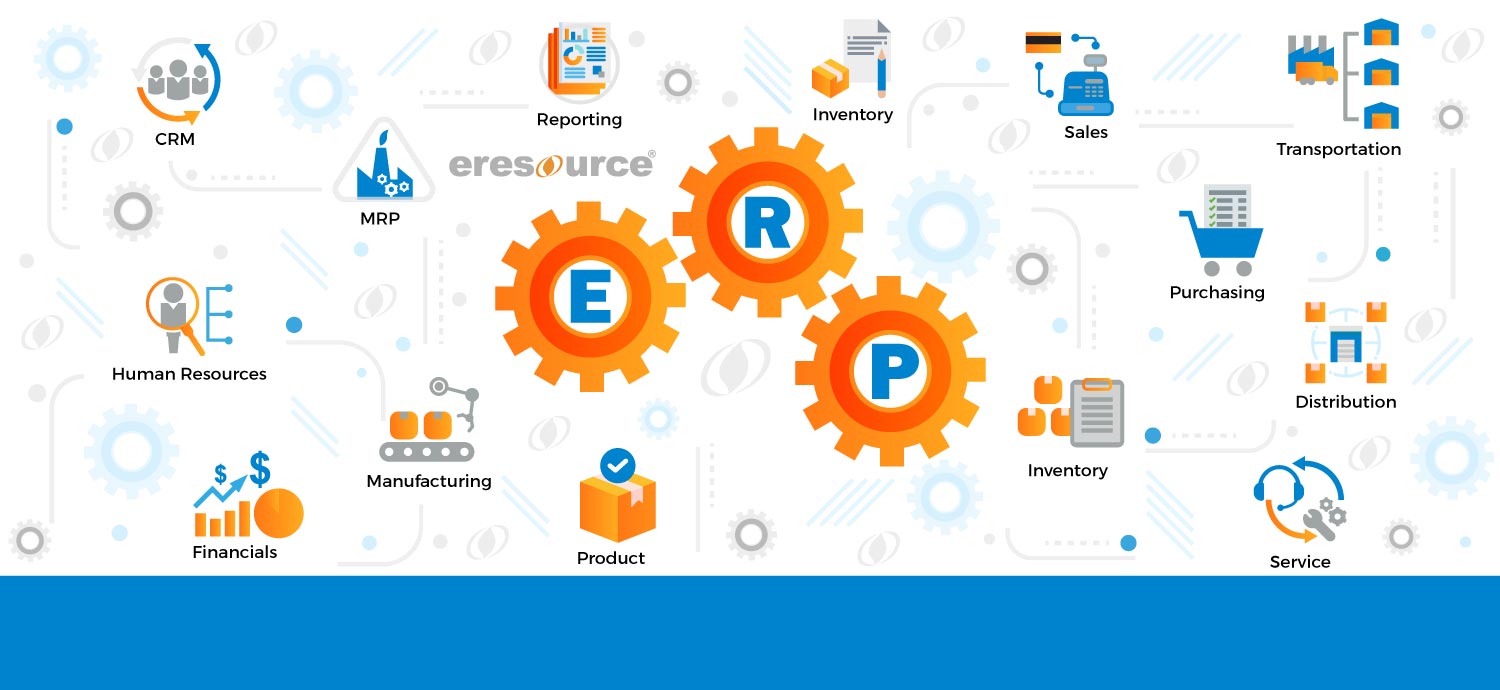The purpose of enterprise resource planning (ERP) software is to integrate and automate business activities throughout an organisation using a wide range of software tools. Historically, because of their high cost and complexity, ERP systems have been linked to large businesses. But as cloud-based solutions have grown in popularity and technology has advanced, ERP systems have been more widely available to small and medium-sized businesses (SMBs). We’ll look at the advantages and difficulties of SMBs implementing ERP systems in this article.
ERP advantages for SMBs
Operations are more efficiently run, which is one of the key advantages of an ERP system for SMBs. ERP systems can assist SMBs in reducing errors and saving time by integrating and automating corporate procedures. This may result in greater production and efficiency, which may support SMBs’ ability to compete in their individual marketplaces.
Greater Visibility:
ERP solutions can give SMBs greater insight into their business processes. Due to their access to real-time information about their operations, SMBs may be able to make well-informed decisions rapidly as a result. SMBs can take action before problems develop by using this to identify areas of their business that may need improvement.
Better Financial Management:
ERP systems give SMBs access to accounting, budgeting, and financial reporting tools, improving financial management. These solutions give SMBs real-time access to financial data, allowing them to quickly make educated decisions, which can help them enhance their financial performance. ERP systems can also automate financial procedures, lowering the possibility of errors and guaranteeing adherence to accounting rules.
Better customer connection management: In order to compete in the market, SMBs must maintain solid ties with their clients. By offering capabilities for customer relationship management, such as order management, customer support, and marketing automation, an ERP system can assist SMBs in achieving this. The solution can offer SMBs real-time visibility into customer interactions, allowing them to increase customer satisfaction and forge deeper ties with their clients.
Improvements in business intelligence: Advanced business intelligence technologies, including as data analytics, reporting, and dashboards, can be made available to SMBs via ERP systems. These technologies can assist SMBs in understanding their performance and fast reaching data-driven decisions. Furthermore, real-time access into important performance metrics can be provided by ERP systems, empowering SMBs to see patterns and take preventative action.
Also Read – ERP Software for Process Industry
ERP’s difficulties for SMBs
Cost:
For SMBs, the cost of deploying an ERP system is one of the biggest obstacles. ERP systems have always been linked to expensive setup expenses, which can be a major barrier to entry for SMBs. But with the popularity of cloud-based solutions, SMBs may now subscribe to ERP systems, which lowers the up-front cost of deployment.
Complexity:
To satisfy the unique needs of an SMB, ERP solutions sometimes need to be highly customised. SMBs may find this difficult because they lack the resources or knowledge necessary to set up and operate an ERP system. However, ERP systems are now more accessible and simpler to adopt for SMBs thanks to cloud-based options.
Implementation Time:
SMBs that need to be flexible and sensitive to market developments may find it difficult to implement an ERP system because it can be a time-consuming procedure. Cloud-based solutions, on the other hand, have greatly shortened ERP system deployment timelines, allowing SMBs to adopt and implement ERP systems more quickly.
Staff Resistance to Change:
For an SMB, implementing an ERP system can be a substantial change that runs the risk of encountering staff resistance. The success of an ERP system depends heavily on employee buy-in, which can be difficult for SMBs. However, effective communication and training can lessen this difficulty.
Conclusion
ERP systems can benefit SMBs in a variety of ways, such as streamlining operations, improving visibility, improving financial management, improving customer relationship management, and improving business intelligence.
Also Read – Best ERP Software for Construction in India
Categories
Register for Free Demo!
Recent Post
-

eresource ERP 360 - an
11th Apr 2019 -

A competitive ERP system for
17th Apr 2019 -

Auto components manufacturing industry has
17th Apr 2019 -

Make the best use of
17th Apr 2019







